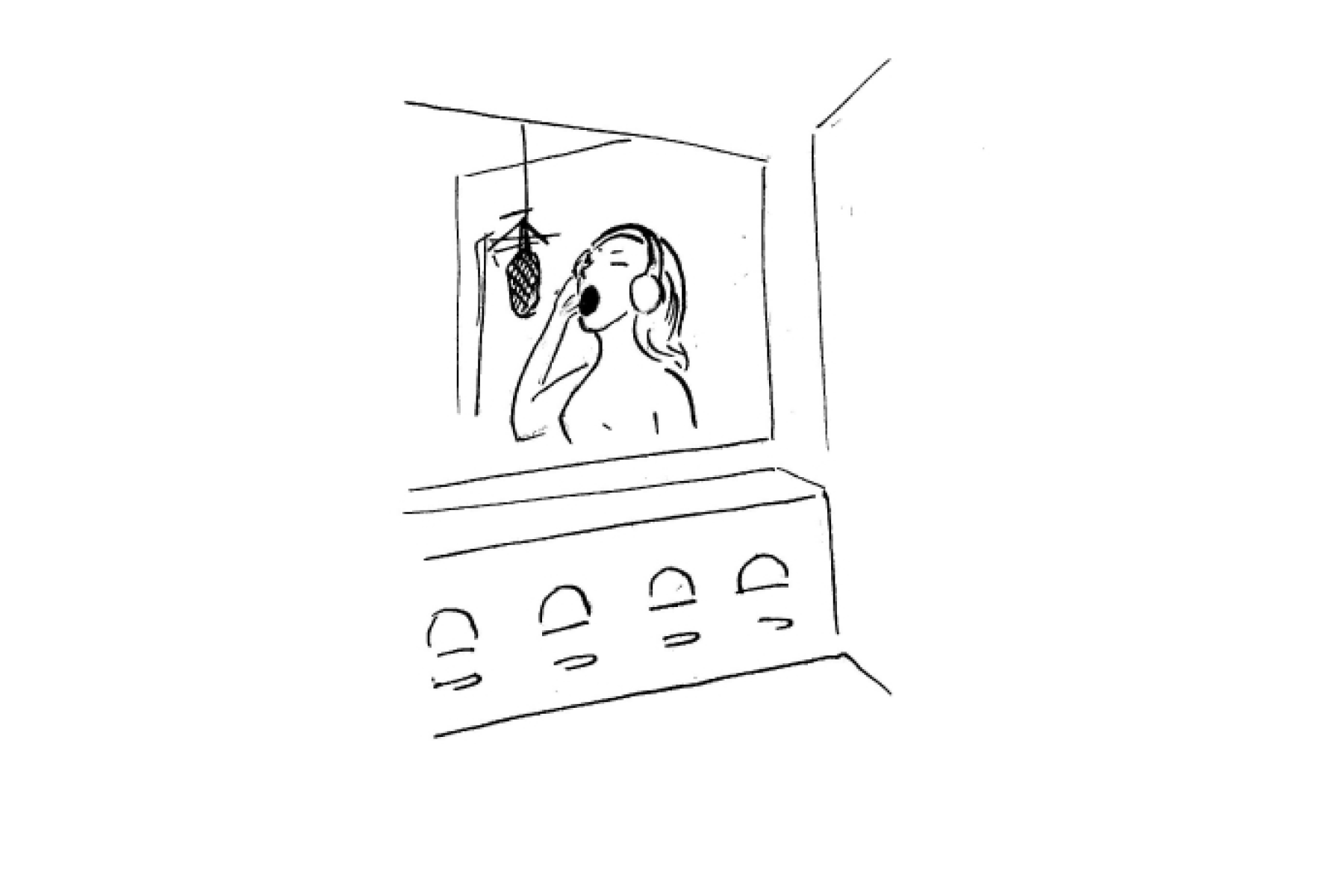
The Context
The most critical skill for recording anything in a studio setting is staying in the moment. Presence is a performer's strongest point of leverage. When that tape starts rolling and the red light goes on, the artist must be able to switch off all distractions and put their whole attention on the movements they're executing. Otherwise they'll get trapped inside their own heads, disconnect from the creative process and lose momentum.
The Tool
Red Lighting
RED LIGHTING — Making a different choice about how we experience our creative failures
This mantra, stay is a lifesaver during the creative process. Especially if your tendency, whenever something in your performance goes wrong, is to disconnect from your body and disappear into your head. Overthinking your mistakes, calling yourself names, derailing the process, it all feeds on itself in a shaming, downward spiral. And it happens in an instant. But it doesn't have to. We can make a different choice about how we experience our failures. Usher, the award winning artist who has sold over twenty million records, once taught a masterclass on performance. The advice he gave to singers was, don't get into the habit of stopping the whole performance when you make a mistake. Even when you crack, power your way through it. Forgive yourself. You can't pay for the mistake every time you sing. What's your tip for staying with the music?

Scott's Take
Phil, the brilliant sound engineer who's produced my last six musical albums, has this mantra that still rings inside my head anytime I'm recording new material. Stay with music. Meaning, when you play the wrong chord or sing a flat note, resist the temptation to dwell on that mistake. There's no need to beat yourself up. Instantly forgive yourself for not being perfect, and then take it again. If possible, hold your body and instrument in the exact same position so you don't lose the momentum.
The Rest
Even if you're not a singer, it's an important skill to develop. Because it's not about making music, it's about making mistakes. Whatever process you're engaged in, if loud in your ears from every side you hear, failure, failure, failure, then it's going to be one hell of an uphill battle. On the other hand, if you learn to view your mistakes as just more of the universe coming into view, then you can create the energetic leverage to catapult yourself through. Next time the red light goes on and your note doesn't come out right, take a few breaths and let yourself feel safe. See what it’s like on the other side of forgiveness. Maybe it wasn't a mistake, just more of the universe coming into view. What kind of relationship do you have with small failures?
The Benefits
Deepen compassion for your weaknesses and mistakes
Increase resilience so you can push through difficult projects
Maintain focus and momentum even when your performance suffers
Gain perspective about your own failures in the context of your larger career